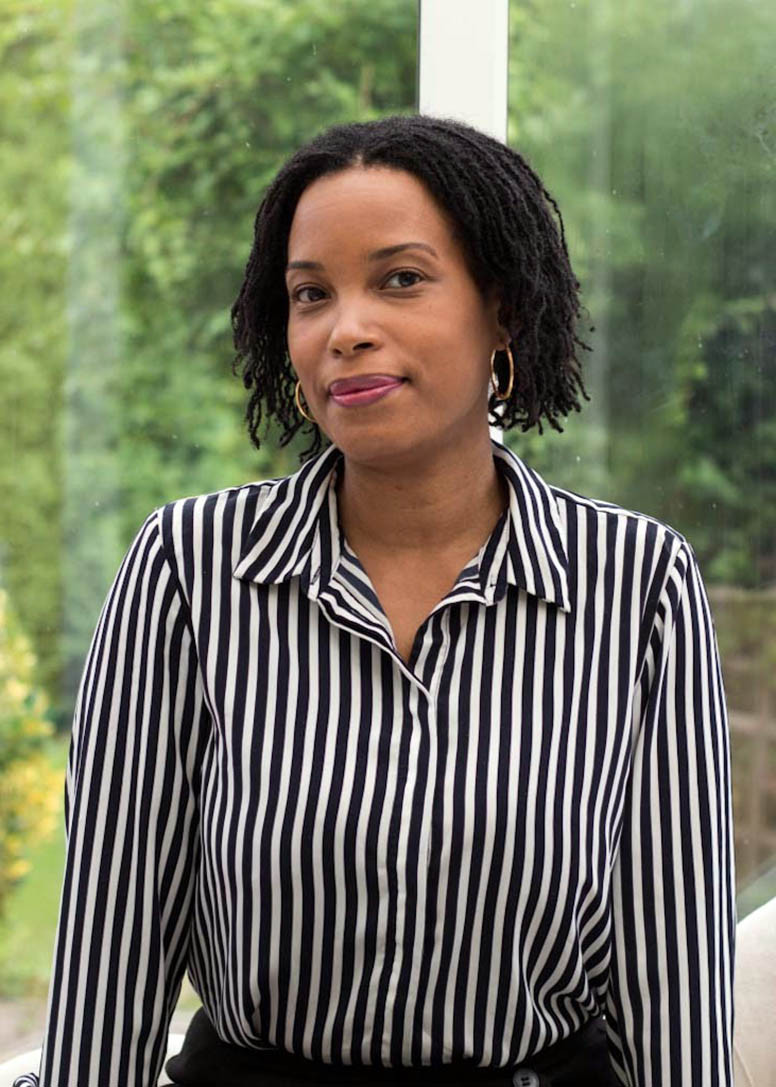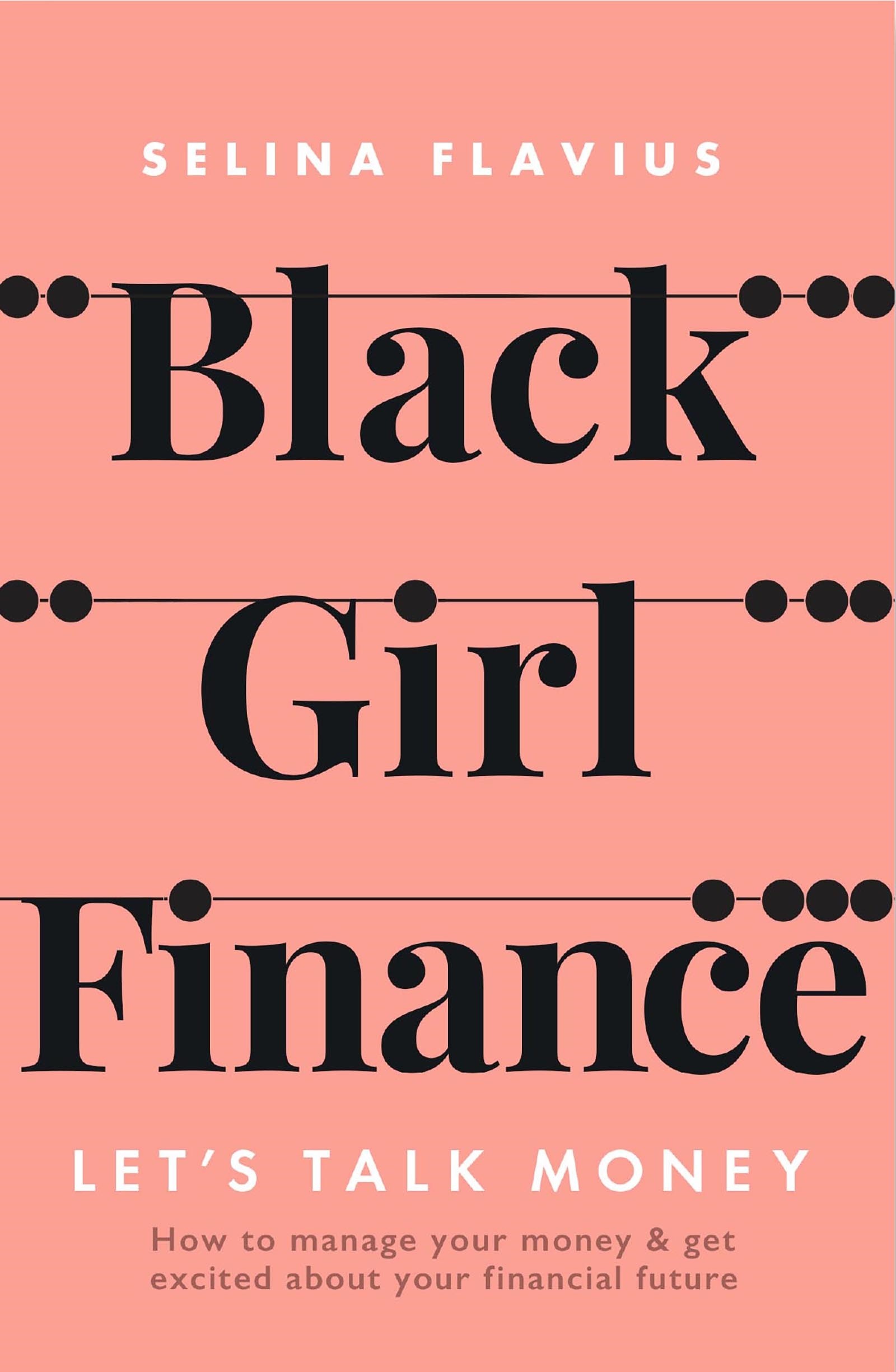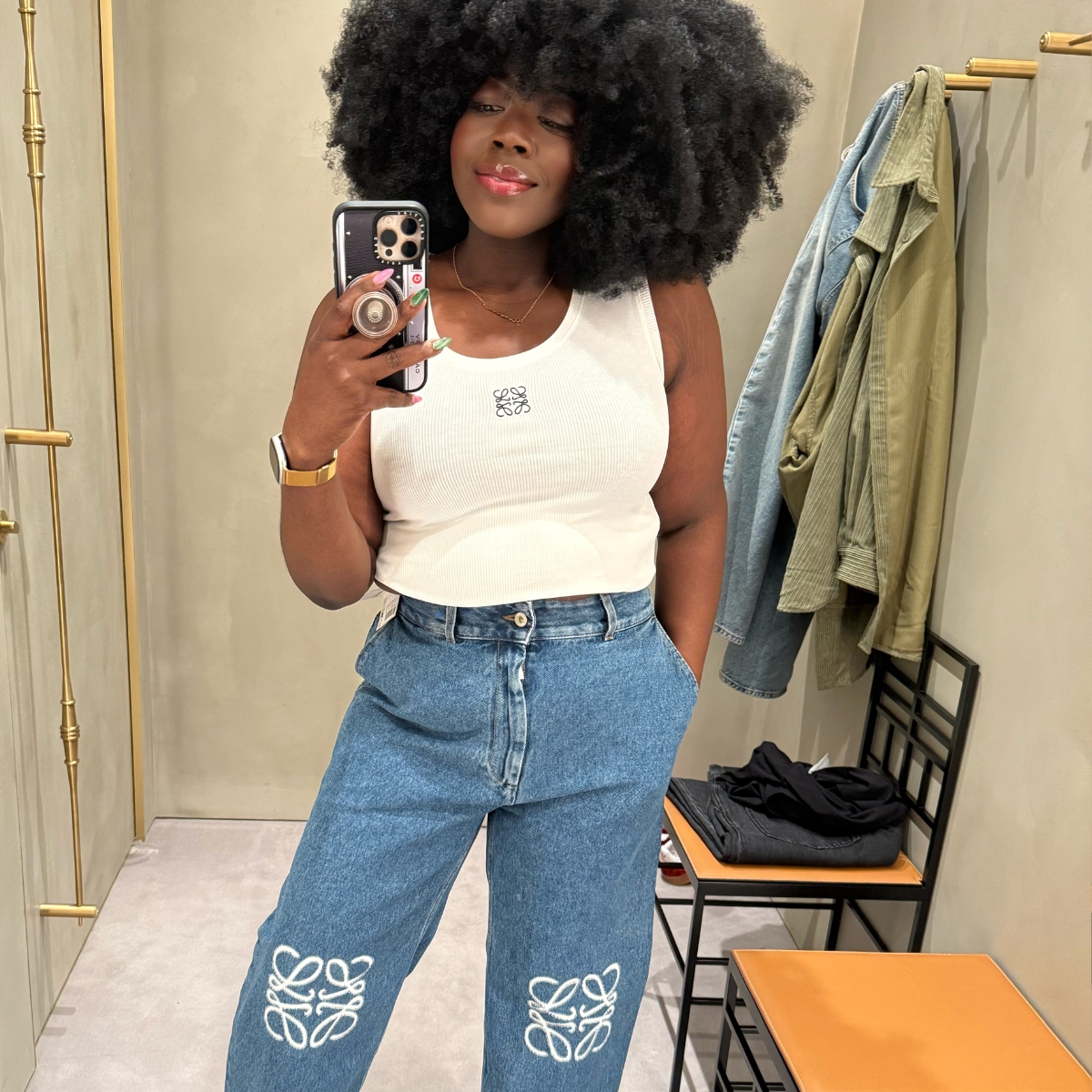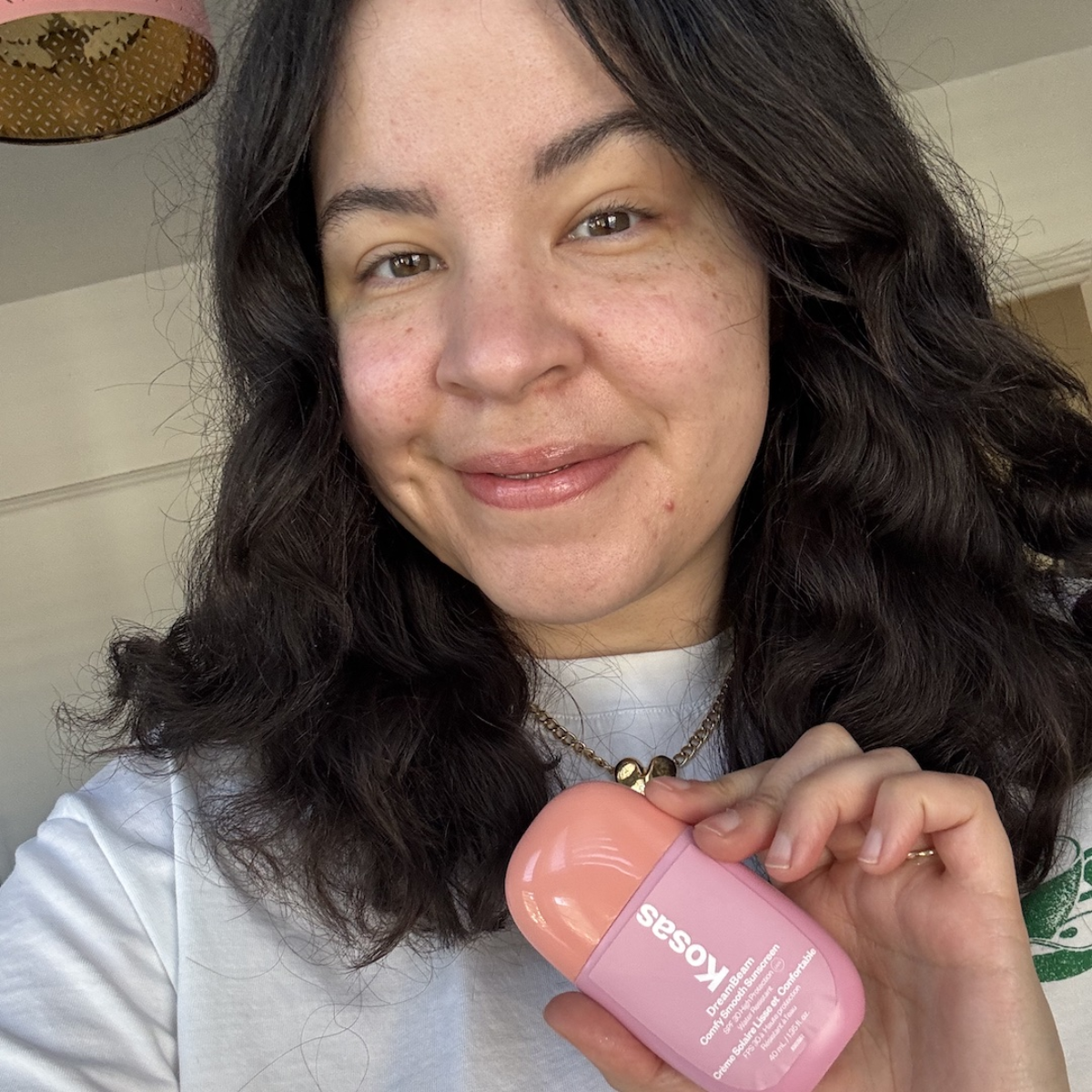'How we can close the ethnicity pay gap,' says Selina Flavius, Black Girl Finance founder
Selina Flavius created Black Girl Finance because people of colour are financially worse off than whites. Fact. Flavius explains how we can all help dismantle systemic money inequalities


Selina Flavius created Black Girl Finance because people of colour are financially worse off than whites. Fact. Flavius explains how we can all help dismantle systemic money inequalities
"For a long time I felt Black people were unrepresented in personal finance literature or on any exisiting platforms, so in 2019 I launched Black Girl Finance as a platform to create a safe place for Black women to talk about all things personal finance. I'm a finance coach, and a committed advocate for equal pay in the workplace for women and people from Black, Asian and minority ethnic backgrounds to counteract the impact of the gender and ethnicity pay gap.
November 20th was Equal Pay Day last year (the day when women effectively, on average, stop earning relative to men in the UK) and while it has promisingly shifted later in the year, there is still a long way to go. Even more so now than ever before, especially considering the suspension of pay gap reporting last year due to the pandemic (usually companies with 250 employees and above must report their gender pay gap) - and with the third lockdown likely to hit women the hardest again.
The topic of the gender pay gap is highlighted when tackling inequality in the workplace, but more difficult to highlight is the impact of the added intersectionality of the ethnicity pay gap. According to research by the Office for National Statistics, most minority ethnic groups earned less on average than white British colleagues in 2019.
The ethnicity pay penalty
If you're a woman and from a Black, Asian or minority ethnic background, when is your equal pay day? If the trend follows the pattern seen in the US, where Black women earn $0.75, and Asian-American women earn $0.93 for every $1 earned by a white man, Black, Asian and minority ethnic women in the UK also face an ethnicity pay penalty. Black women’s equal pay day in the US was celebrated on the 13th August, and it is worked out as the time it takes beyond the new year that a Black woman must work to make the same amount as her white male counterpart earned the previous year.
Although we are aware an ethnicity pay gap exists within the UK, the government has still not introduced mandatory ethnicity pay gap reporting. And this shocking omission comes after countless research and reports suggesting women from ethnic minority backgrounds are reporting more worry about loss of working hours and promotion prospects compared to white women and white men, especially since COVID-19 upended most working lives.

Of the businesses voluntarily reporting their ethnicity pay gaps, in some instances the gap is substantial. A Lloyds TSB report in April 2020, showed the median pay gap between Black staff was 19.7%, whilst the gap for Asian employees stood at 25.7% compared to other staff. ITN is one of the first media companies to report their BAME pay gap, with the average gap being 16.1%.
Marie Claire Newsletter
Celebrity news, beauty, fashion advice, and fascinating features, delivered straight to your inbox!
A common reason given for the pay gap in both organisations is the lack of BAME representation in high enough numbers across the board including in senior leadership roles. The same is cited as one of the reasons for the gender pay gap, a lack of women in senior leadership positions.
The shocking price paid by BAME women
I speak to many BAME women who have discovered they are underpaid in comparison to white female colleagues. Recently, I was advising a woman who had found out one of her junior staff members was on £7K more than her. Unless you are aware of a pay gap and consciously research and negotiate your salaries, pay gaps can follow you throughout your career. It’s not uncommon in interviews to be asked about your current salary and expectations, and for a person to negotiate from that lower position. As an individual always research salaries before negotiating. Always add extra.

What are the systemic solutions?
Eliminating conscious and unconscious bias Research clearly shows some conscious or unconscious bias can creep into traditional recruitment practices. Recruiting using blind CVs ensures gender and ethnicity are not pre-selected, and focus only on skills and experience remains at the forefront when recruiting.
Figure out how to reach diverse job hunters There are a plethora of networks dedicated to female and diverse backgrounds, companies not to build relationships with these networks to create a pipeline of diverse candidates.
Ensure underrepresented groups are in leadership programmes Once candidates are in the door, it's vital that people from underrepresented groups have access to leadership courses. This needs to be embedded in the culture of organisations.
Measure, measure, measure Companies need to know their numbers, so you know where you have begun and where you want to go when setting clear targets on eradicating gender and ethnicity pay gaps. Acknowledging and being intentional in closing these gaps, is a great start for any organisation.
Selina'a new book, Black Girl Finance: Let’s Talk Money (Quercus) is on sale from January 21
Maria Coole is a contributing editor on Marie Claire.
Hello Marie Claire readers – you have reached your daily destination. I really hope you’re enjoying our reads and I'm very interested to know what you shared, liked and didn’t like (gah, it happens) by emailing me at: maria.coole@freelance.ti-media.com
But if you fancy finding out who you’re venting to then let me tell you I’m the one on the team that remembers the Spice Girls the first time round. I confidently predicted they’d be a one-hit wonder in the pages of Bliss magazine where I was deputy editor through the second half of the 90s. Having soundly killed any career ambitions in music journalism I’ve managed to keep myself in glow-boosting moisturisers and theatre tickets with a centuries-spanning career in journalism.
Yes, predating t’internet, when 'I’ll fax you' was grunted down a phone with a cord attached to it; when Glastonbury was still accessible by casually going under or over a flimsy fence; when gatecrashing a Foo Fighters aftershow party was easy-peasy-lemon-squeezy and tapping Dave Grohl on the shoulder was... oh sorry I like to ramble.
Originally born and bred in that there Welsh seaside town kindly given a new lease of life by Gavin & Stacey, I started out as a junior writer for the Girl Guides and eventually earned enough Brownie points to move on and have a blast as deputy editor of Bliss, New Woman and editor of People newspaper magazine. I was on the launch team of Look in 2007 - where I stuck around as deputy editor and acting editor for almost ten years - shaping a magazine and website at the forefront of body positivity, mental wellbeing and empowering features. More recently, I’ve been Closer executive editor, assistant editor at the Financial Times’s How To Spend It (yes thanks, no probs with that life skill) and now I’m making my inner fangirl’s dream come true by working on this agenda-setting brand, the one that inspired me to become a journalist when Marie Claire launched back in 1988.
I’m a theatre addict, lover of Marvel franchises, most hard cheeses, all types of trees, half-price Itsu, cats, Dr Who, cherry tomatoes, Curly-Wurly, cats, blueberries, cats, boiled eggs, cats, maxi dresses, cats, Adidas shelltops, cats and their kittens. I’ve never knowingly operated any household white goods and once served Ripples as a main course. And finally, always remember what the late great Nora Ephron said, ‘Everything is copy.’
-
 Kendall Jenner, Em Rata and Simone Ashley love this affordable Aussie fashion brand—and it's finally available in the UK
Kendall Jenner, Em Rata and Simone Ashley love this affordable Aussie fashion brand—and it's finally available in the UKChic styles from down under
By Jazzria Harris
-
 I’m a size 18 Fashion Editor—these are the most flattering plus-size jeans I’ve tried
I’m a size 18 Fashion Editor—these are the most flattering plus-size jeans I’ve triedCurve denim that's worth every penny
By Stephanie Yeboah
-
 This sunscreen leaves my skin so glowy—it’s basically replaced most of my makeup-bag
This sunscreen leaves my skin so glowy—it’s basically replaced most of my makeup-bagForget the foundation...
By Mica Ricketts